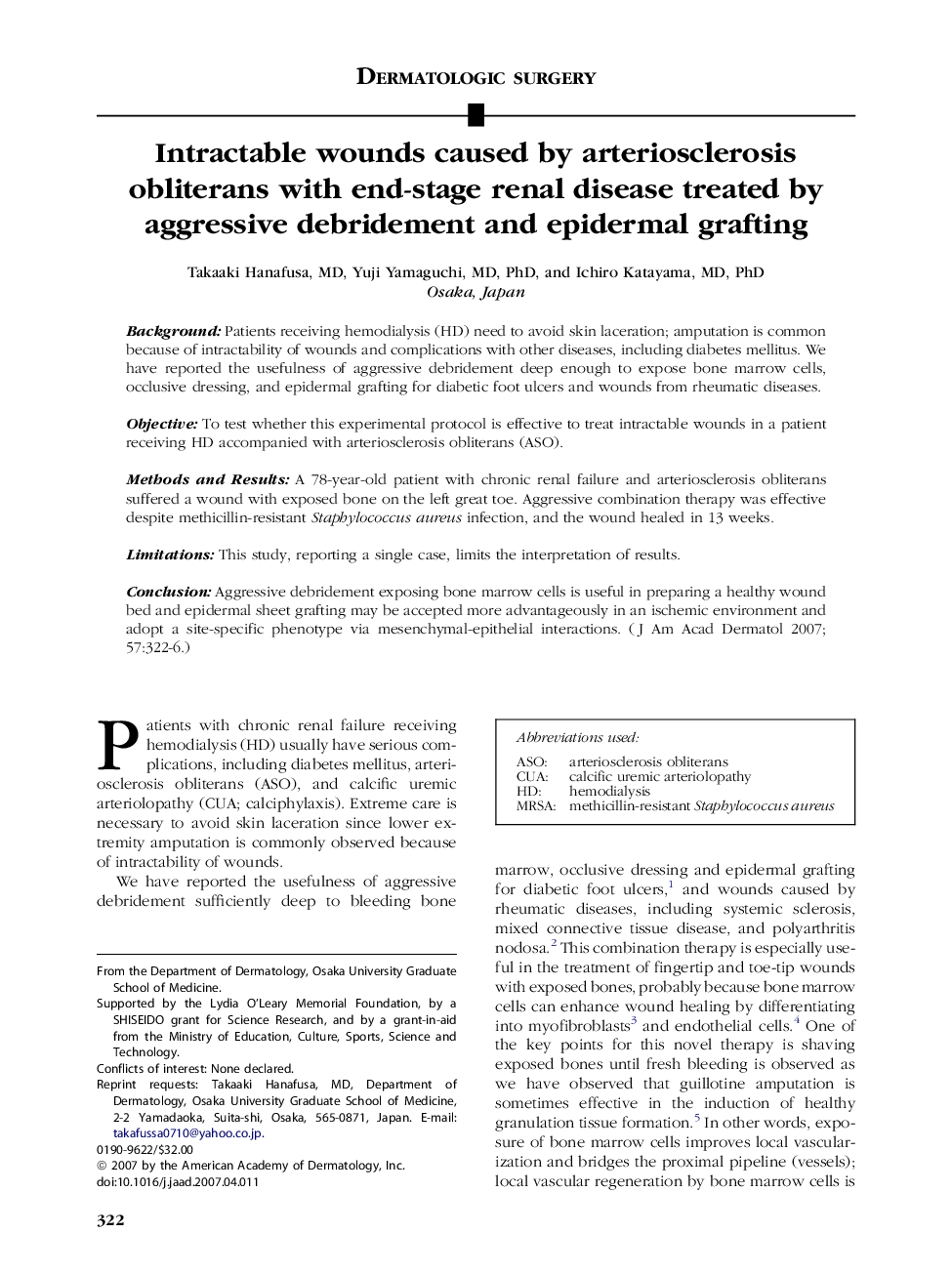| کد مقاله | کد نشریه | سال انتشار | مقاله انگلیسی | نسخه تمام متن |
|---|---|---|---|---|
| 3211522 | 1587639 | 2007 | 5 صفحه PDF | دانلود رایگان |

BackgroundPatients receiving hemodialysis (HD) need to avoid skin laceration; amputation is common because of intractability of wounds and complications with other diseases, including diabetes mellitus. We have reported the usefulness of aggressive debridement deep enough to expose bone marrow cells, occlusive dressing, and epidermal grafting for diabetic foot ulcers and wounds from rheumatic diseases.ObjectiveTo test whether this experimental protocol is effective to treat intractable wounds in a patient receiving HD accompanied with arteriosclerosis obliterans (ASO).Methods and ResultsA 78-year-old patient with chronic renal failure and arteriosclerosis obliterans suffered a wound with exposed bone on the left great toe. Aggressive combination therapy was effective despite methicillin-resistant Staphylococcus aureus infection, and the wound healed in 13 weeks.LimitationsThis study, reporting a single case, limits the interpretation of results.ConclusionAggressive debridement exposing bone marrow cells is useful in preparing a healthy wound bed and epidermal sheet grafting may be accepted more advantageously in an ischemic environment and adopt a site-specific phenotype via mesenchymal-epithelial interactions.
Journal: Journal of the American Academy of Dermatology - Volume 57, Issue 2, August 2007, Pages 322–326